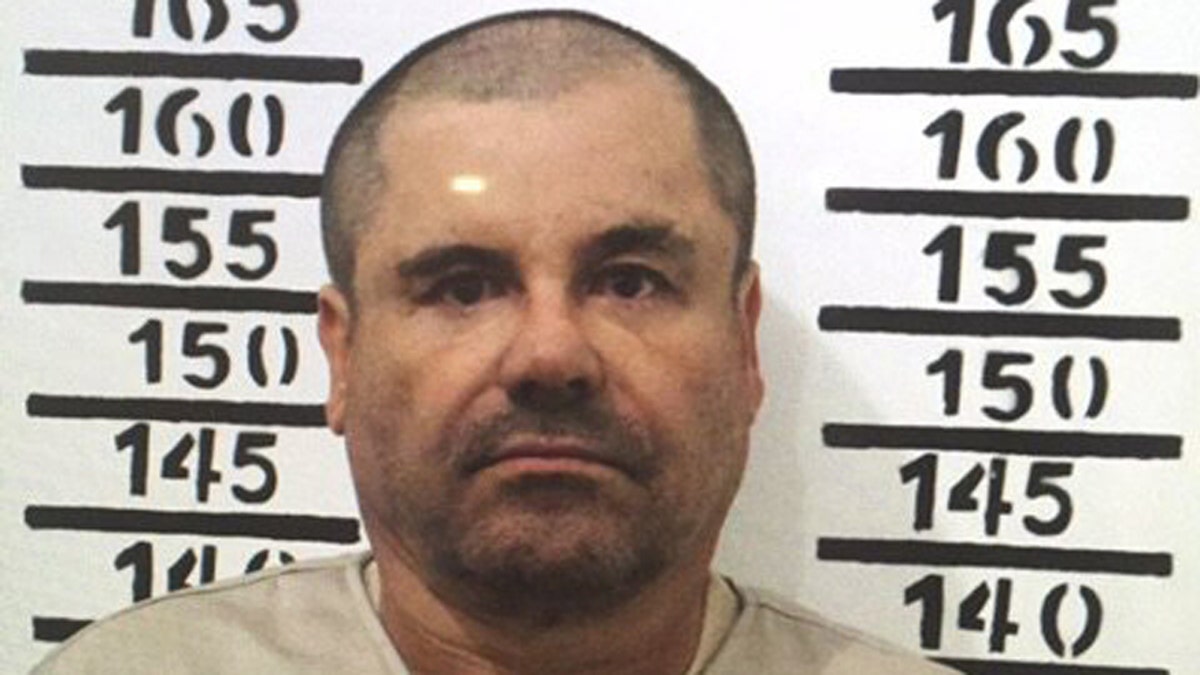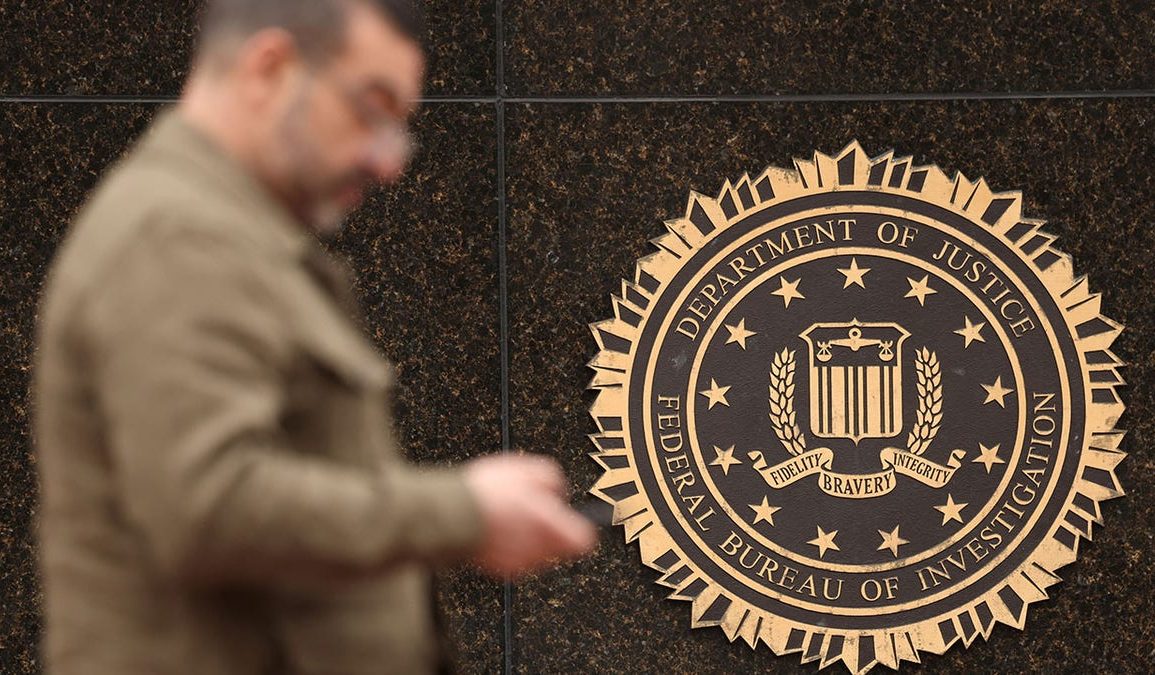NEWYou can now listen to Fox News articles!
A hacker working for the Sinaloa Cartel in Mexico was able to obtain an FBI official’s phone record information in 2018 and used Mexico City’s surveillance camera system to track and kill informants and witnesses, the Justice Department said in a report.
The 2018 incident was disclosed in the Justice Department Inspector General’s audit of the FBI’s efforts to “Mitigate the Effects of Ubiquitous Technical Surveillance.”
TRUMP ADMIN SANCTIONS EL CHAPO’S CHILDREN, VIOLENT FENTANYL-TRAFFICKING CARTEL ARM LOS CHAPITOS

A person passes by the FBI seal on the wall of the FBI headquarters. A hacker for the Sinaloa Cartel accessed an FBI official’s phone records and used Mexico City’s surveillance camera system to track and kill informants and witnesses, authorities said. (REUTERS/Kevin Lamarque)
The report said the FBI was working on the case of Joaquin “El Chapo” Guzman, the former leader of the infamous cartel who was extradited to the United States in 2017, when someone tipped the FBI that the drug-trafficking organization hired a hacker “who offered a menu of services related to exploiting mobile phones and other electronic devices.”
The hacker was able to identify an FBI assistant legal attaché (ALAT) at the U.S. Embassy in Mexico City and was able to use the attaché’s phone number “to obtain calls made and received, as well as geolocation data.”
FBI PIVOTS RESOURCES TO COUNTERTERROR, CYBERSECURITY EFFORTS AMID IRAN RETALIATION THREAT: SOURCE



In this Jan. 8, 2016 image released by Mexico’s federal government, Mexico’s most wanted drug lord, Joaquin “El Chapo” Guzman, stands for his prison mug shot with the inmate number 3870 at the Altiplano maximum security federal prison in Almoloya, Mexico. (Mexico’s federal government via AP) (AP)
“According to the FBI, in addition to compromising the ALAT’s phone, the hacker also accessed Mexico City’s camera system, used the cameras to follow the ALAT through the city, and identified people the ALAT met with,” the report states. “According to the case agent, the cartel used that information to intimidate and/or kill potential sources or cooperating witnesses.”
The hacker and victims were not identified in the report. Fox News Digital has reached out to the U.S. Embassy in Mexico City, the State Department, the FBI and Justice Department.
CLICK HERE TO GET THE FOX NEWS APP
The report noted that advances in technology have “made it easier than ever for less-sophisticated nations and criminal enterprises to identify and exploit vulnerabilities” created by UTS, a term used to describe the widespread collection and storage od data and analysis often from everyday technologies like smartphones, computers and even vehicles.








